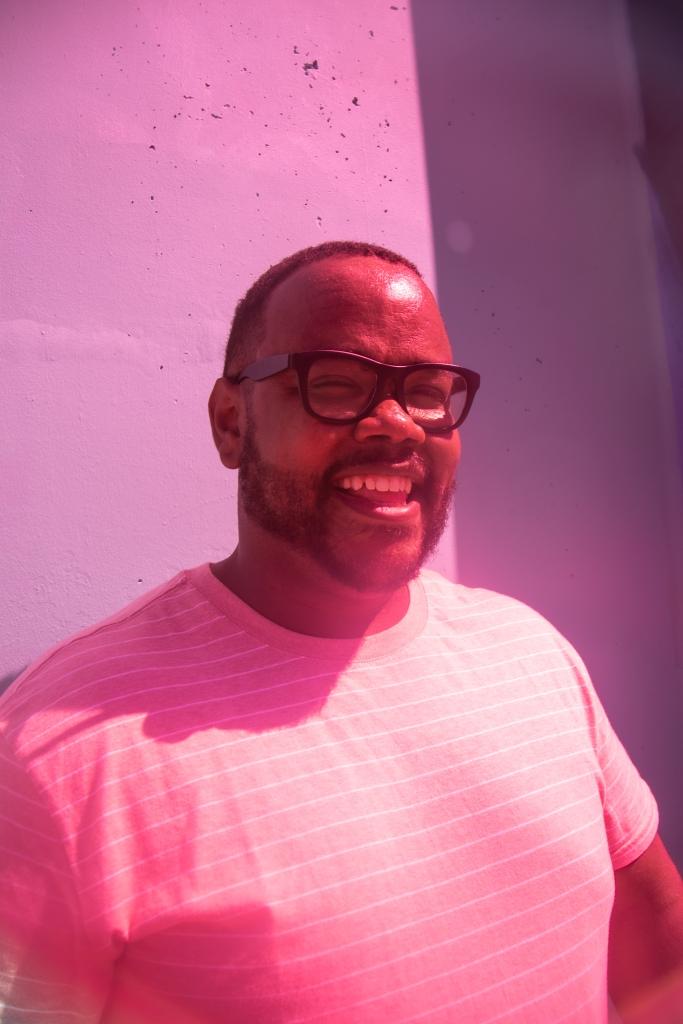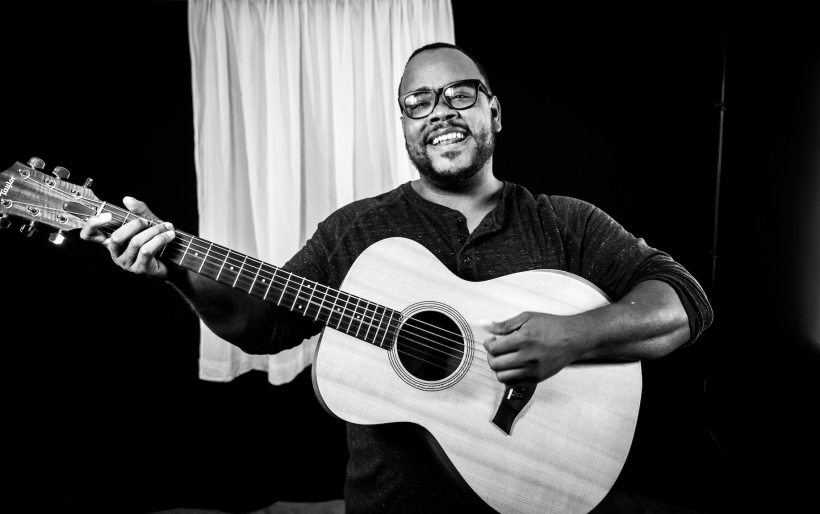JV: On the topic of DIY touring, I think about the song “DIY Or Die” – and the fact that you’re not the sort of “DIY” where it’s like, yeah this band plays house shows but actually they have a manager, a booking agent, label backing, etc. A Day Without Love has been Do-It-Yourself-ing it in the purest sense. And it’s not easy. Do you think true DIY is a myth? Or is it attainable and sustainable? (I’m sorry if this could be an essay unto itself, haha.)
BW: No worries, allow me to break this down.
As I am answering this question, I am currently $6,000 in debt from being a musician, in total I am approximately $101,000 in debt. I do think being a true DIY artist is possible, however I have even left that reality at times. Case in point: this record is being released by Ur Mom Records, and while they don’t take a royalty percentage out of my masters, the work of Molly Compton ( Founder of Ur Mom Records) is not unseen. A Stranger That You Met Before was all written by me lyrically, I wrote about 90% of the harmony, melody and rhythm of the record, but I have many musicians who have helped me with adding to the arrangement. I thank Maya Renfro (violin), Erin Fox (viola), Ellen Tiberio Schulz (cello), Branden Bauer (vocals, drums, second guitar), Kitzy (production), Renee Drezner (vocal production and vocals) and the background vocalists (Bel, Juliet of Tragesty, and Lucia Montalvo) for making this record a reality. Not to mention the folks who mastered the record for vinyl, Bobby Giel, and Gary Cioni for streaming. I also worked with Jamie Coletta for consulting and Sara Johnson for art direction and Justin Arena for merchandise. And currently I have a live band that is learning my songs from the album and writing new material with me. (Liam Kernan on bass, Justin Arena on drums, Bryce Dwyer on lead guitar).
Every one of these people are scattered not just in Philadelphia but across three different time zones. I could have taken longer to try to figure out the labor to make this a reality, but I think every band / artist needs people to make music become a reality. True DIY, or rather realistic DIY, is about people power and being able to work together on budgets and favors to make music become a reality. I credit the people I work with because I try to not sacrifice my creative values to be able to be an independent musician. I don’t seek profit and clout by trading my morals for visibility. I don’t think true DIY is a myth, but I think in this economy it does require relationship-building. It is hard to be sustainable, but people power and community power helps make budgets more manageable. I am currently in a budget hole now, but my reliance and belief in others helping me is helping me reduce this hard debt and makes my touring not only realistic, but it allows me to accept the help of others. In short, if you want to be a DIY artist, you have to be willing to hold on to your values and learn to be good at team work. There’s no shame in hired help, or building a team, but be honest about your code of ethics as a musician and the difficult realities that come with the entrepreneur side of being a musician.

A Day Without Love | photo by Paulina McGrath
JV: You recently shared on Instagram that 100% of the people who worked on the record are in some way marginalized – they might be queer, they might be neurodivergent, they might be a survivor. Was this done as an intentionally inclusive thing, to uplift folks? Or was it something coincidental you noticed as the record fell in place?
BW: I didn’t realize this until I was in Denver, CO taking photos with Paulina McGrath. Paulina is a mixed-race and queer photographer I met in Massachusetts. Before doing photos with her, I talked to her about the mission of my record and we were talking about the importance of having representative teams on your creative projects. I think the diversity of the people who worked with me was not done as a “intentionally inclusive” thing but more as a reflection of my networks. While many know me as a folk artist, acoustic artist, a Philly artist or more recently a Boston local artist, I have been in diverse social and music groups for years in more ways than one. I wanted to share the representation of the folks on my team so that people know that diversity breeds creativity, understanding, and bridges the gaps between communities and underground DIY scenes.
JV: The interludes where you present bits of conversation about being on the road – first, they’re very fun, it feels like you’re kind of walking into a conversation at a gig as the night winds down. I love that they’re there. But also they also speak to a sort of shared language and experience independent creatives have. How did you make these; did they come from your time working on the Safe x Sound doc, or were they chats you recorded specifically for the album and then took excerpts of the parts that hit home the most?
BW: Believe it or not they were completely improvised and unrehearsed. The concepts were brainstormed ahead of time but were reflective of my experiences as a musician. “What Would You Do” was a car conversation with Branden Bauer that turned to an actual recording about our peers small and large who have played the gamble between selling their ethics for fame and our peers who have grown out of developing community from years of commitment. “Nacho vs Taco” was a homage to being a taco lover on the road. I have eaten many local foods and happen to be a big fan of tacos, given that this record is about being on the road I wanted to highlight that via an interlude like old 90s hip hop records.
JV: “Good Friends Are Hard To Find” was one of the first songs from this album that you released, and it seems in some ways to almost be its thesis statement. I also like that you can read that statement in both a negative and a positive light; yes, friendship and community is a hard endeavor, but it’s also worth it and should be cherished. Did you mean it both ways? Do you lean more interpretation than the other? Or does it depend on the day?
BW: Personally “Good Friends Are Hard to Find” was a challenge: my friend Aaron challenged me to write a happy song that also describes my feelings of being alone. I wrote the song not with the intent of being on any album, but then the song stuck with me. It is one of the many themes and thesis to the record because I believe finding your home group in music is not a simple endeavor. NPR has spoken about the fact we are living in a loneliness epidemic; this is not to be confused with the fact that this song is another “pandemic song,” but to address that human connection is a glue to creative communities. For so long I searched for community in basements, dive bars and more, and I think this song is a reminder that none of us have to be alone, and none of us have to DIY alone. Each note, each song is meant for connection and how we share it is both personal and for something that’s bigger than us… and that is community.
A Day Without Love’s new album A Stranger That You Met Before is out now, and you can support the project directly on Bandcamp. The band kicks off tour this Saturday, October 21st, in Worcester, Massachusetts; full dates are available on Instagram at @adaywithoutlove.

